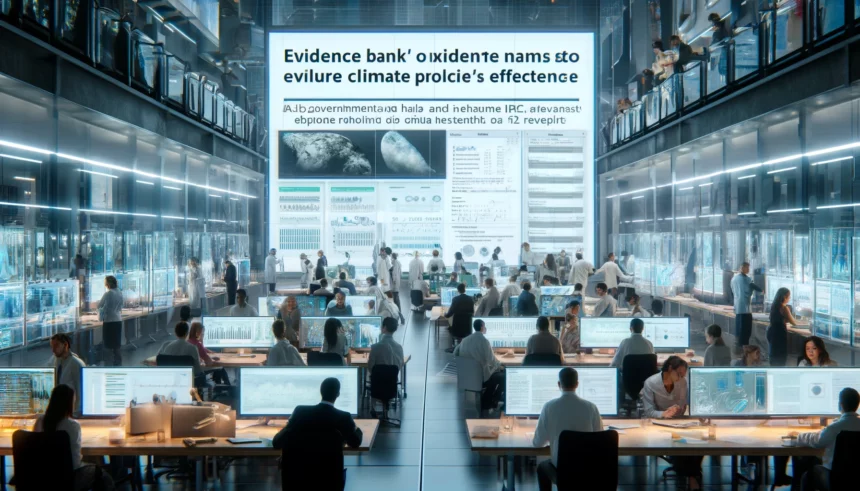Introduction
Finding the best ways to combat climate change is crucial. Researchers are now developing an innovative idea: an “evidence bank” to track and compare the effectiveness of different climate policies. This project, involving experts and AI, aims to help governments choose the best strategies for reducing emissions and adapting to global warming.
The Need for an Evidence Bank
Governments around the world have introduced thousands of climate policies over the past three decades, from carbon taxes to promoting electric vehicles. But which of these policies actually work best? This is where the evidence bank comes in, aiming to fill the gap by synthesizing scientific research and providing clear insights into policy effectiveness.
Key Points:
- Policies in Play: Thousands of policies exist, but their effectiveness is often unclear.
- Purpose: The evidence bank will help identify which policies work best in different contexts.
- Future Impact: This resource could shape the next scientific assessment by the Intergovernmental Panel on Climate Change (IPCC), scheduled for 2029.
What Experts Are Saying
Jan Minx, a climate researcher leading this initiative, emphasizes the importance of this project. He believes that without this systematic approach, scientific policy advice could become ineffective. Jim Skea, chair of the IPCC, supports the idea, noting that governments are seeking more guidance on climate actions.
Insights:
- Jan Minx’s View: The evidence bank addresses the central question of “what works?” in climate policy.
- Jim Skea’s Perspective: An evidence-based approach aligns perfectly with current IPCC goals.
The Challenge of Growing Research
The number of climate change studies has exploded, making it difficult to keep up. For example, while fewer than 1,100 studies were published before the IPCC’s first assessment in 1990, over 400,000 were published for the latest assessment. This growth presents a major challenge in synthesizing the vast amount of available data.
Solutions:
- Systematic Reviews: Borrowing methods from medical research, systematic reviews can help synthesize and compare studies.
- AI Assistance: AI tools can speed up the process of reviewing and sorting studies, making it easier to update evidence syntheses continuously.
Real-World Examples and Potential Impact
Minx’s team recently published a review on carbon pricing, showing that these schemes can reduce emissions by 4-15%. However, many such schemes have not been thoroughly evaluated. The evidence bank aims to provide more comprehensive insights into the cost-effectiveness and broader impacts of such policies.
Case Study:
- Carbon Pricing: Initial reviews suggest significant emission reductions, but more comprehensive evaluations are needed.
Health and Climate Policy
Alan Dangour from Wellcome highlights the need for evidence on the health impacts of climate policies. Wellcome is investing in new approaches to evidence synthesis, with a goal of creating an AI tool for updating these syntheses in real time.
Focus Areas:
- Health Impacts: Understanding how climate policies affect health is crucial.
- Future Goals: Developing an open-access AI tool to continuously update evidence.
Challenges and Cautions
While systematic reviews are valuable, they might overlook broader policies, especially in developing countries. Policies like fuel taxes or green-job initiatives may not be categorized as climate policies but still contribute to emission reductions. Navroz Dubash warns against focusing too narrowly on specific policies, which might miss out on more effective, broader strategies.
Considerations:
- Broader Policies: It’s important to include policies that indirectly affect emissions.
- Developing Countries: Tailoring policies to specific national contexts is crucial.
Conclusion
Creating an evidence bank is an urgent step towards better climate policy. By systematically reviewing and comparing policies, this project aims to ensure that governments can make informed decisions to combat climate change effectively. With the support of climate researchers and institutions, this initiative could significantly shape future climate actions and policies.
















